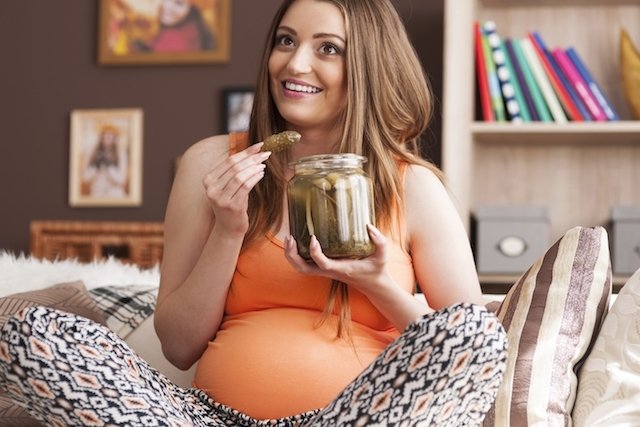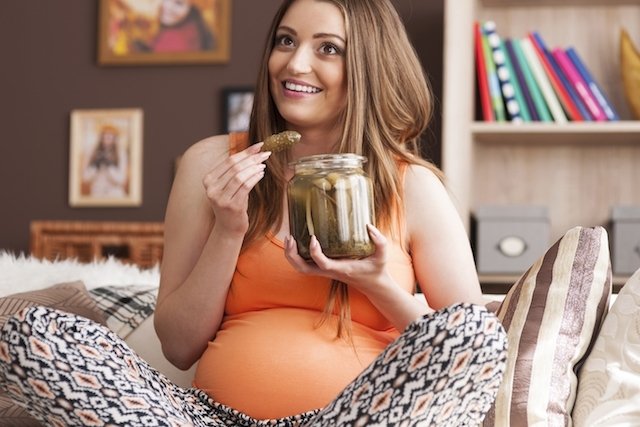Cravings during pregnancy usually appear in the first trimester, and may increase in the second trimester and stop in the last trimester of pregnancy. However, the stage at which desires arise is different for each woman.
Cravings during pregnancy are sudden urges to eat foods with a specific taste or texture, or to combine foods that are not usually eaten together. Furthermore, these desires can also include “foreign” things, inedible substances or substances without nutritional value, such as stone, chalk, soap or earth, for example.
More studies are still needed to prove the causes of cravings during pregnancy. However, it is believed that these cravings arise due to hormonal changes or nutritional deficiencies. Therefore, in cases of cravings for unusual things or unhealthy foods, it is advisable to talk to your obstetrician.

Possible causes
Although the causes of cravings during pregnancy are not yet known, it is believed that they arise due to hormonal changes that occur during pregnancy, which, in turn, alter mood, smell and taste, increasing appetite and the desire for food. eat specific foods.
Furthermore, during pregnancy, there is a greater need for the body for nutrients that are important for the baby’s development, such as iron, zinc and protein. Thus, a woman may want to eat more meat during pregnancy, to increase the body’s need for iron, for example.
The fact that some foods contain compounds that can help alleviate certain pregnancy symptoms may also be related to these cravings. For example, chocolate contains methylxanthines, which are compounds that help improve tiredness.
What are the most common desires
Cravings during pregnancy vary from one woman to another. However, the most common desires are to eat sweets, such as ice cream and chocolate, meals like fast food, Japanese or Chinese food, fruits and vegetables in general and foods rich in starch, such as pizza, rice, pasta and potatoes.
What is the desire to eat inedible things?
When a woman feels like eating inedible things, such as bricks, soap or paper, it is a sign of pica syndrome, which generally indicates a nutritional deficiency. Learn more about pica syndrome
Consuming foods outside of their usual form, that is, combined with other unusual foods, such as coriander with saffron and salt, can also be considered a type of this syndrome. In either case, it is important to consult a doctor to identify which nutrient may be missing and begin the most appropriate treatment.
Furthermore, pica syndrome can also be related to psychological changes, such as depression and obsessive compulsive disorder, which is why medical, nutritional and psychological monitoring is important in this situation.

Sign up for our newsletter and stay up to date with exclusive news
that can transform your routine!
Warning: Undefined array key "title" in /home/storelat/public_html/wp-content/plugins/link-whisper-premium/templates/frontend/related-posts.php on line 12
Warning: Undefined array key "title_tag" in /home/storelat/public_html/wp-content/plugins/link-whisper-premium/templates/frontend/related-posts.php on line 13




